
Featured Blog | This community-written post highlights the best of what the game industry has to offer. Read more like it on the Game Developer Blogs.
In a matter of months, we have gone from never having pitched a game before to having our pitches win prizes. This is a guide on perfecting the art of showing your game to anyone. Written by Molly Heady-Carroll, Co-Founder of Arcane Circus.

Introduction
My name is Molly Heady-Carroll, I am the Co-Founder of Arcane Circus, a two person team based in the Netherlands, and the Lead Artist for Crap! I’m Broke: Out of Pocket. Before December 2015, we had never pitched a game before. It was around this time that Arcane Circus was accepted into the Big Indie Pitch at Apps World London, where we took third place. We were short listed for the Very Big Indie Pitch at Pocket Gamer Connects 2016 a few months later, where we were top-five finalists out of around 50 games pitched. Most recently, during GDC 2016 in San Francisco, we received a flattering article by Eli Hodapp at Touch Arcade which praises our pitching skills.
“I'm going to be linking this to other developers as a great example of how to pitch your game,” – Eli Hodapp, Editor-in-Chief Touch Arcade
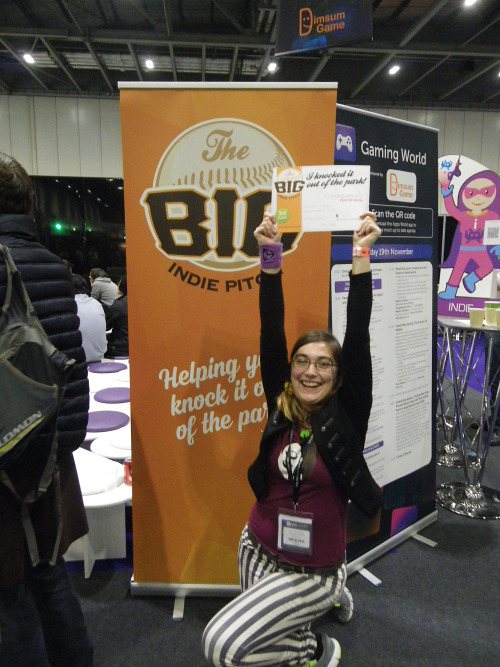

(left) our third place prize at the Big Indie Pitch 2015, (right) Our on-stage pitch at the Very Big Indie Pitch finals 2016
Fresh from GDC 2016, these recent achievements left me wanting to share some thoughts on pitching and help those preparing pitches of their own. I hope that with this article I can, in some small way, give something back to the industry that has thus far been very kind to me.
The Anatomy of a Pitch

The structure I typically adder to when preparing a pitch is a 1-3 minute length and with the following structure:
1.) Introducing Yourself
2.) Summing Up the Game in a Few Words (AKA: “The Hook”)
3.) Further Elaboration of What the Game is and What the Player Will Experience
4.) Which Platforms the Game is Coming Out On and When
5.) Take Questions and Thank Them for Their Time
This article will delve into each of these aspects in detail and conclude with a few thoughts on pitching.
IMPORTANT! Know Who You Are Pitching To
You need to present different information depending on who you are pitching to. Think about what the other party is gaining from listening to your pitch for clues on what you should cover. For example, an investor wants to hear about your financial track record and how similar projects have done financially in the past, so he or she can assess how long it will take for them to see a return on their investment and how much equity they should take. A games journalist, on the other hand, wants to hear what is noteworthy about your game and what is interesting to write an article about.
Our pitching experience is with journalists, juries and gamers. Although there are elements of this article that could be useful to those seeking investment or publishers, this is not the focus of the article.

Put simply: if you are pitching to Kevin O’ Leary, I would read another, more appropriate article.
1.) Introducing Yourself
Say hello, shake hands, thank them for meeting with you, ask how they are doing, introduce yourself and your position at your studio and what your studio is called, maybe where it is based and how many of you there are. The hard part, however, can be getting to this point.
I would recommend that if there is anyone you specifically want to talk to and pitch your game to, try to set up a meeting with them ahead of time: visit them at their office, invite them out for coffee, make an official appointment at least three weeks (preferably more) before a games event you both happen to be attending.
Pitching to someone you bump into on a show floor is not always possible; people are busy and could be on their way to meet someone who DID make an appointment. If you do bump into someone serendipitously, let them know you understand they are busy right now but you would love to talk to them at a more quite moment, perhaps over email after the event is over. Let them know a tiny bit about what you are working on, exchange business cards and thank them for their time. Come across as understanding and empathetic, people warm up to that much better than pushiness.

It can be tricky making chance-meetings happen in this vast ocean. Plan ahead!
2.) Summing Up the Game in a Few Words
(AKA: “The Hook”)

A hook explains a game’s core in a few words and makes the listener want to learn more. The hook builds intrigue and interest while also being informative. See the hook as the proverbial first sentence on your game’s Steam page.
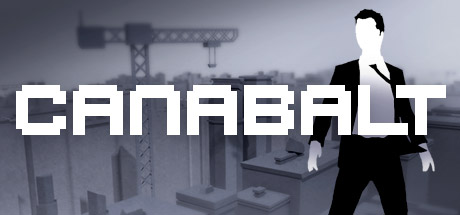
“Escape the destruction of your city with just one button. ” – The hook for “Cannabalt”
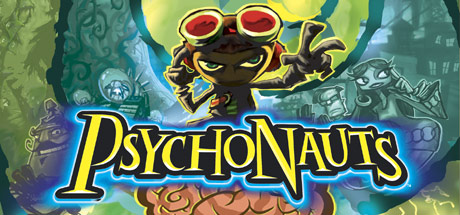
“Psychic Odyssey Through the Minds of Misfits, Monsters, and Madmen.” – The hook for “Psychonauts”
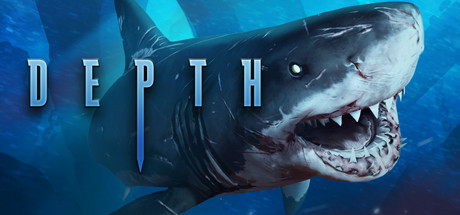
“Play as a shark or a diver in a dark aquatic world and overcome your enemies by employing cunning, teamwork, and stealth.” – The hook for “Depth”
These hooks give a great idea of what each game is about without the listener even having to see a screenshot. Canabalt’s hook focuses on its game mechanics, Psychonauts’ hook focuses on story and Depth’s hook focuses on gameplay. This is also, not coincidentally, some of the most interesting and remarkable elements for each game.
The great conundrum is that because you are so close to your game, you are simultaneously the most and least qualified person to create your hook!
Get to the core of what gives your game its identity. Try to imagine what a person would say when explaining the game to a friend. Which elements are most interesting to players? What do players comment on first after playing your game? What is INTERESTING and INTRIGUING about your game?
Too many words makes a game's hook sounds unfocused. Too many buzz words can make the hook sound unnatural in casual conversation. Your game can change over time and you may have to update your hook. Hooks are probably the most difficult part of a pitch to prepare. This one’s a doozy, readers! Good luck and don’t give up!
3.) Further Elaboration of What the Game is and What the Player Will Experience
This is where you can go into the specifics of the game and can answer the questions your listener may have about the game, such as which game genre it falls into. This is your chance to elaborate, but still keep it short and specific. One sentence factually summing up what the player(s) will be doing while playing is generally enough.
4.) Which Platforms the Game is Coming Out On and When
Do not forget to mention this! Assuming the reason you are pitching is because you think the listener may be interested in the game, why wouldn’t they also be interested in knowing where and when it is coming out? Knowing this information is important to the person listening because they can make informed conclusions on how far along the game is, which platforms you have already made contact with, the kind of audience you will be reaching and, best of all, who they know that can help you out.
5.) Take Questions and Thank Them for Their Time
Congratulations, you made it! Don't forget to exchange business cards at the end so you can keep in touch.
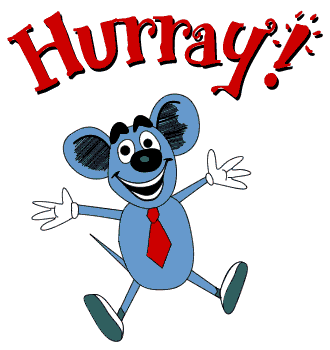
Pitching Sound Hard, Right? That’s Why You Have to Practice it Beforehand!
Practice your elevator pitch! People always say it. You know you should do it. You don’t know when you are going to bump into that editor in chief for that one big game news website, or that developer who can, with a single tweet, make you a big time success. If you haven’t practiced ahead of time to the point where you can activate pitch-mode like a well-rehearsed part in a theater performance, you’re going to fumble, erm, ehh and make your game sound super boring: even if it isn’t!
You also want to get over the embarrassment of talking to a stranger about your game. Ask people you trust around you “Can I practice my pitch on you?” and be able to do it if they agree. Do it until it isn’t hard anymore and not a single pitch before that. While preparing for the Big Indie Pitch, my mum would call me on the phone at random times and yell “What’s you game?!” at me until I could pitch without hesitation.
Final Thought: Do Unto Others as You Would Have Them Do Unto You
Always take caution to not be pushy, annoying, boring or uninteresting. Touched upon earlier in this article, always apply common sense and kindness with how you approach people, but also what you present to them. From time to time, take a step back with your pitch and ask yourself honestly if you would appreciate how you behave and find what you are presenting interesting. You are a part of this industry and people will judge you accordingly. Push yourself to a professional level of quality that, as an outsider, you would consider acceptable. You are not expected to be flawless from the get go, but also don’t forget that the best individuals in the games industry are people like you. What they do is not unachievable for us mere mortals.
(If you are at school/college, this is ESPECIALLY important! Don’t base your professional worth by only comparing yourself to the others in your class. There is a whole industry out there and your class is just a fraction of it.)
Thanks for reading!
At your service,
Arcane Circus
Read more about:
Featured BlogsAbout the Author(s)
You May Also Like









